C2C Journal
A Rush to the Exits: Forget Immigration, Canada has an Emigration crisis

From the C2C Journal
By Scott Inniss
Canada’s open immigration policy has often been hailed as a positive thing, contributing to the building
of the country. Yet the Trudeau government’s decade-long determination to drive immigration numbers
ever-higher – a policy that public outcry now has it scrambling away from – has obscured an important
and discouraging phenomenon. Every year, tens of thousands of Canadians leave the country, taking
their skills and ambitions with them, and leaving Canada diminished.
Emigration is the flipside of the immigration issue — a side that has been largely ignored. Statistics
Canada estimates that more than 104,000 people left Canada in 2023-2024, a number than has been
rising for the past few years. Another study put the number of Canadian citizens living abroad in 2016 at
between 2.9 million and 5.5 million, with a “medium” scenario of 4,038,700 — or about 12.6 percent of
the Canadian population that year (the latest for which this kind of analysis exists).
This trend isn’t just an abstract problem; it undermines the very economic goals policymakers hope to
achieve through immigration. Emigrants are younger, better educated, and earn higher incomes than
the average Canadian, according to Statcan’s study: “The departure of people with these characteristics
raises concerns about the loss of significant economic potential and the retention of a highly skilled
workforce.” Canada is losing its best and brightest, many of them to the U.S. A survey by the U.S. Census
Bureau this year said the number of people moving from Canada to the U.S. was up 70 percent from a
decade ago.
Canada’s economic decline is big reason for the exodus. In 2022, all 10 Canadian provinces had median
per capita incomes lower than the lowest-earning American state. Canada’s per capita GDP growth has
also stagnated, with projections placing the country dead last among OECD nations out to 2060. Our
productivity is in decline and business investment is moribund, meaning employers in other countries
are able to pay more and compete for qualified labour.
The high cost of living, particularly skyrocketing housing costs, is an increasingly large factor pushing
skilled Canadians abroad. A recent survey by Angus Reid reported that 28 percent of Canadians are
considering leaving their province due to unaffordable housing, with 42 percent of those considering a
move outside Canada.
Even immigrants to Canada are losing faith and moving on. A recent report from the Institute for
Canadian Citizenship, entitled The Leaky Bucket, found that “onward” migration had been steadily
increasing since the 1980s. A follow-up survey of more than 15,000 immigrants and found that 26
percent said they are likely to leave Canada within two years, with the proportion rising to over 30
percent among federally selected economic immigrants—those with the highest scores in the points
system.
“While the fairy tale of Canada as a land of opportunity still holds for many newcomers,” wrote Daniel
Bernhard, CEO of the ICC, there is undeniably a “burgeoning disillusionment. After giving Canada a try,
growing numbers of immigrants are saying ‘no thanks,’ and moving on.” It’s a particularly stark
phenomenon considering that most immigrants have come from much poorer, less developed and often
autocratic or unsafe nations; that these people find Canada – for decades considered the ultimate
destination among those seeking a better life – to be such a disappointment that the best response is to
leave is a damning indictment.
Consider Elena Secara, an immigrant from Romania who built a life here only to find Canada’s economic
reality falling short of her expectations. After nearly two decades, Secara plans to return to Romania, a
country she sees as improving, while Canada, she says, “is getting worse and worse. Canada is
declining…In Romania there are much more opportunities for professionals, the medical system is
better, the food is better.” And, she adds with a laugh, “Even the roads are better.” One of her sons has
already voted with his feet, and is now living in Romania.
That a country like Romania, for years one of Europe’s poorest and most corrupt nations, can now
attract emigrants from Canada should be sobering for policymakers. Canada is facing ever-greater
competition just as it enters the second decade of what may be its longest and most serious economic
deterioration since Confederation.
Each emigrant lost represents not just an individual choice but a systemic failure to provide opportunity
at home. As the revolving door of emigration spins faster, Canada faces a reckoning. Our political leaders
must address the housing crisis, lower tax burdens, and foster a more competitive economy to retain
the talent Canada desperately needs. Without action, Canada’s silent exodus risks becoming a defining
national failure—one that leaves the country less resilient, less innovative, and less prepared for the
future.
The original, full-length version of this article was recently published in C2C Journal.
Scott Inniss is a Montreal writer.
C2C Journal
Charlie Kirk and the Fragility of Civic Peace
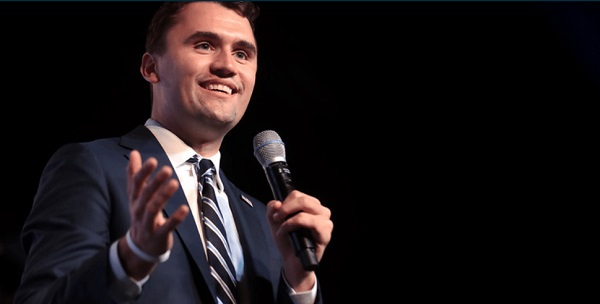
The brutal assassination of Charlie Kirk was shocking not only for its violence but for the chilling aftermath – the revelling on the left, the mendacious reporting, and the calls for more political violence.
Kirk embodied a conversational politics now rare. As founder of Turning Point USA, he brought millions of young people to conservatism by touring campuses and inviting critics – not just supporters – to the microphone. He strode into the lion’s den of higher education, taking hostile questions with civility, good humour, and reasoned argument rather than rancour.
“Disagreement,” he liked to say, “is a healthy part of our systems.”
It wasn’t necessary to share his convictions to recognize his courage and composure.
The reaction to Kirk’s death on September 10 at Utah Valley University was particularly disturbing. News outlets and social media overflowed with callous gloating and demands for further violence. “He got what he deserved” was among the milder responses. A conservative group logged more than 50,000 such comments in four days. Democratic members booed a motion for silence in Congress. A Secret Service agent called Kirk’s death “karma.”
How did it become virtuous to cheer a fellow human being’s death? Part of the answer lies in what literary critic George Steiner called the passing of the tragic vision. In The Death of Tragedy (1961), Steiner argued that tragedy – once the highest expression of human dignity amid suffering – had perished in Western culture, and its loss was civilizational.
The tragic view holds that suffering is an inherent part of the human condition. Chance, flaw, and necessity are woven into our very existence. This recognition distinguishes the tragic sensibility from utopian schemes of collective redemption. Enlightenment rationalism envisioned the world as scientifically perfectible; Marxism reinterpreted conflict as a class struggle culminating in utopia; the managerial state promised that expertise would eliminate disorder.
But when we forget life’s limits, politics ceases to be the art of prudence and compromise and becomes a fever dream of utopia. Once utopia is the aim, violence is reimagined as a form of purification. The French Revolution’s Terror, Stalin’s gulags, Mao’s Cultural Revolution, Pol Pot’s killing fields – each arose from rejecting Kant’s warning: “Out of the crooked timber of humanity, no straight thing was ever built.”
Tragic sensibility is not fatalism. It tempers ambition with humility, recognizing that motives are mixed, victories partial, and knowledge flawed – and that opponents share our frailties. To acknowledge this crookedness is clarity, not despair. Only those who accept tragic limits can build anything lasting.
Politics lacking tragic sensibility becomes a substitute religion, promising salvation through power. Opponents become enemies; compromise becomes betrayal; violence follows. Those convinced of their righteousness feel justified in demonizing others. This tendency is especially apparent on today’s left; its ‘virtuous’ rhetoric of compassion often masks self-righteousness – and self-righteousness without humility can be deadly.
Consider Kirk’s accused assassin, 22-year-old Tyler Robinson. Raised in a stable, conservative family, Robinson drifted leftward and was recently radicalized, seemingly influenced by his transitioning roommate. He referred to himself as a leftist who loathed Trump. One can envision him then, cloaked in righteousness, believing he struck a blow against evil. The opponent becomes not a fellow human being but a symbol of oppression. Murder is no longer malice but moral necessity – the cost of purity. As Robespierre said, “Terror is nothing other than prompt, severe, inflexible justice; it is therefore an emanation of virtue.”
Canadians often imagine themselves immune to such eruptions. Yet our history tells another story: the October Crisis, the Air India bombing… seventy churches burned after unproven residential-school claims, and on-going anti-Jewish protests. Violence disguised as virtue is not alien to our soul.
Canadian academics exhibited hatred comparable to Kirk’s worst American foes. “Shooting is honestly too good for so many of you fascist c—-,” posted University of Toronto professor Ruth Marshall hours after Kirk’s death. Toronto schoolchildren reportedly cheered the news, while teachers watched passively.
This moment is perilously fragile. Social media amplifies outrage, rewarding anger while penalizing restraint. Every disagreement becomes an “existential crisis.” Every opponent is Hitler. The language of “emergency” and “genocide” floods politics, quickening the slide from rhetoric into violence.
The antidote is not repression but the recovery of tragic wisdom: we must temper politics with humility. This requires cultural renewal and virtues that allow citizens to live with differences: prudence, courage, humility, and charity. We need a civic ethos that balances rights with responsibilities, diversity with shared norms. Without restraint, pluralism degenerates into tribalism.
As Solzhenitsyn wrote in The Gulag Archipelago: “the line dividing good and evil cuts through the heart of every human being.” This understanding counters ideologies dividing the world into pure and impure, oppressor and oppressed. The battle is within each heart – and that recognition demands humility.
Kirk’s assassination serves as a grim warning. The decline of civic peace is never accidental; it springs from ideological fanaticism, the conviction that one’s cause is so virtuous that opponents must be demonized and destroyed. Every destructive ideology cloaks itself in righteousness even as it paves the road to cruelty.
Charlie Kirk’s death exposes the danger of politics detached from a tragic sensibility. We must foster a politics tempered with humility, recognizing that our victories are partial and our understanding imperfect. Without this humble wisdom, freedom itself cannot survive.
The original, full-length version of this article was recently published in C2C Journal.
Patrick Keeney is a Canadian writer who divides his time between Kelowna, B.C., and Thailand.
Alberta
Jason Kenney’s Separatist Panic Misses the Point

By Collin May
Time was a former political leader’s expected role was to enjoy retirement in relative obscurity, resisting the urge to wade into political debate. Conservatives generally stick to that tradition. Ralph Klein certainly did after his term ended. Stephen Harper has made no attempt to upstage his successors. Yet former Alberta Premier Jason Kenney can’t seem to help himself.
From the boardroom of Bennett Jones, one of Calgary’s oldest law firms, Kenney recently offered his thoughts on the unspeakable horrors that await the province should it entertain a debate (perhaps even call a referendum) on separating from Canada. While dismissing Alberta separatists as a “perennially angry minority”, Kenney nevertheless declared a vote on separation would “would divide families, divide communities, divide friends for no useful purpose.” Business partnerships, church and community groups, even marriages and families would break apart, he warned, “shredding the social fabric of the province.”
It was a remarkable burst of untethered hyperbole, but it says more about the former premier than it does about the province he once led.
Kenney’s take on the history of Alberta separatism is telling. It’s a 50-year-old “discredited concept,” he said, whose acolytes “couldn’t get elected dogcatcher in this province.” Exhibit A in his analysis was Gordon Kesler, an Alberta rodeo rider and oil company scout who believed independence was the only way to save Alberta from Ottawa’s depredations. In a 1982 byelection, Kesler got himself very much elected as an MLA under the Western Canada Concept banner. He later lost in the general election to Peter Lougheed’s Progressive Conservatives, but Lougheed did not belittle Albertans for entertaining separatist notions. Instead, he asked for a mandate to fight Ottawa more effectively — and got it.
Kenney, by contrast, ridicules separatists while simultaneously painting them as an existential menace. Worse, he likens them to followers of Vladimir Putin and (perhaps even worse?) Donald Trump. “[I]f you just follow them on social media,” he claimed, one will quickly see that they cheered on Putin’s attack on Ukraine and Trump’s threat of making Canada the 51 st state.
Kenney’s latest intervention fits a pattern. As premier from 2019 to 2022, he could not resist trying to stamp out dissent. During the pandemic, he alienated political allies by dismissing their concerns about mandatory vaccines with contempt. He saw his ouster as UCP leader as the result of a Trumpian-inspired or “MAGA” campaign. UCP party faithful, however, said their rejection of him had far more to do with his top-down leadership style and habit of “blaming other people for the errors he made.”
What’s especially striking about Kenney’s separatist obsession is that he seems to understand as little about Albertans now as he did while premier. Albertans have long debated separation without the province descending into chaos. When Kesler won his seat, people talked about separation, argued its pros and cons, but couples were not running to their divorce lawyers over the issue and business partners were not at each other’s throats.
And there are legitimate reasons for concern about Canada’s social and political structure, as well as the role provinces play in that structure. Canada’s institutions operate largely on an old colonial model that concentrates power in the original population centre of southern Ontario and Quebec. This has not, and does not, make for great national cohesion or political participation. Instead, it feeds constant fuel to separatist fires.
The current threat to Canadian identity comes as well from the ideological commitments of our federal government. Early in his time as Prime Minister, Justin Trudeau declared Canada to be a “post-national” state. This sort of moniker is consistent with the popularly-designated woke doctrine that eschews the liberal nation-state, democratic procedures and individual freedom in favour of tribalist narratives and identity politics.
The obsession with post-nation-state policies has initiated the dissolution of the Canadian nation regardless of whether Quebeckers or Albertans actually vote for separation. We are all becoming de facto separatists within a dissolving Canada, a drift that current Prime Minister Mark Carney’s ineffective “elbows up” attitude has done nothing to reverse.
Kenney’s panicked musings about Alberta separatists would have us believe the province need only continue the fight for a better deal within the Canadian federation. Kenney pursued just such a policy, and failed signally to deliver. For too many Albertans today, his advice does not reflect the political reality on the ground nor appreciate the worrying trends within Canadian institutions and among our political class.
Kenney likes to associate himself with Edmund Burke, the father of conservatism and defender of venerable institutions. But Burke was known as much in his day for his sympathies with the American revolutionaries and their creation of an experimental new republic as he was for his contempt towards the French Revolution and its Reign of Terror. Burke’s conservatism still linked real actions with true words. It would be advisable, perhaps, to keep our own political language here in Alberta within the bounds of the plausible rather than fly off into the fanciful.
The original, full-length version of this article was recently published in C2C Journal.
Collin May is a lawyer, adjunct lecturer in community health sciences with the Cumming School of Medicine at the University of Calgary, and the author of a number of articles and reviews on the psychology, social theory and philosophy of cancel culture.
-

 Red Deer15 hours ago
Red Deer15 hours agoThe City of Red Deer’s Financial Troubles: Here Are The Candidates I Am Voting For And Why.
-

 Business1 day ago
Business1 day agoCutting Red Tape Could Help Solve Canada’s Doctor Crisis
-
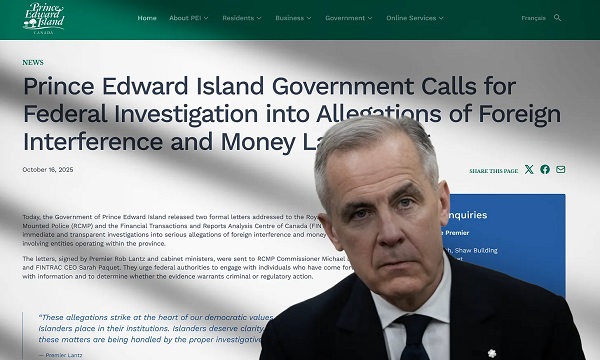
 espionage19 hours ago
espionage19 hours agoPEI to Ottawa: Investigate CCP Footprints—Now
-

 Alberta2 days ago
Alberta2 days agoAlberta taxpayers should know how much their municipal governments spend
-
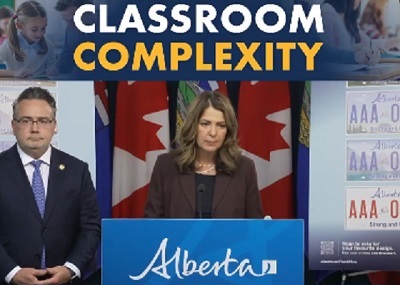
 Alberta2 days ago
Alberta2 days agoPremier Smith addresses the most important issue facing Alberta teachers: Classroom Complexity
-
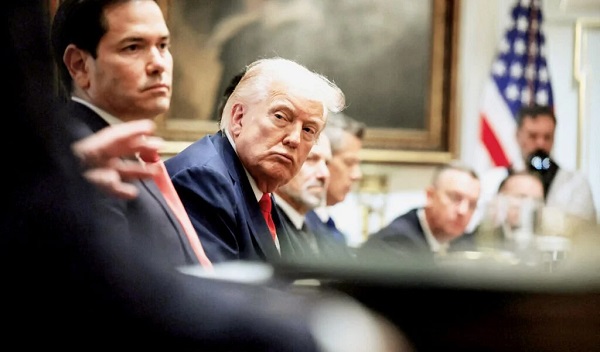
 Bruce Dowbiggin1 day ago
Bruce Dowbiggin1 day agoBrokeback President: We Can’t Quit You, Donald
-
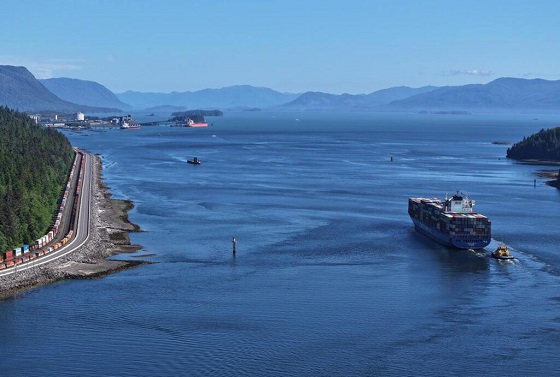
 Energy1 day ago
Energy1 day agoPrince Rupert as the Optimal Destination Port for an Alberta Crude Oil Pipeline –
-
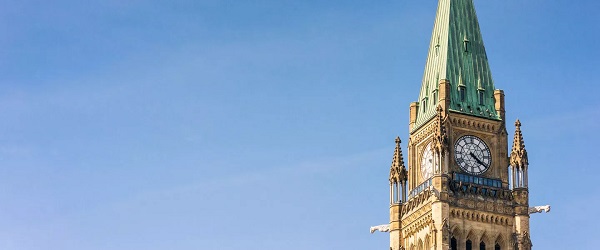
 Business16 hours ago
Business16 hours agoFederal Budget 2025: A responsible media would ensure Canadians know about the dismal state of federal finance




